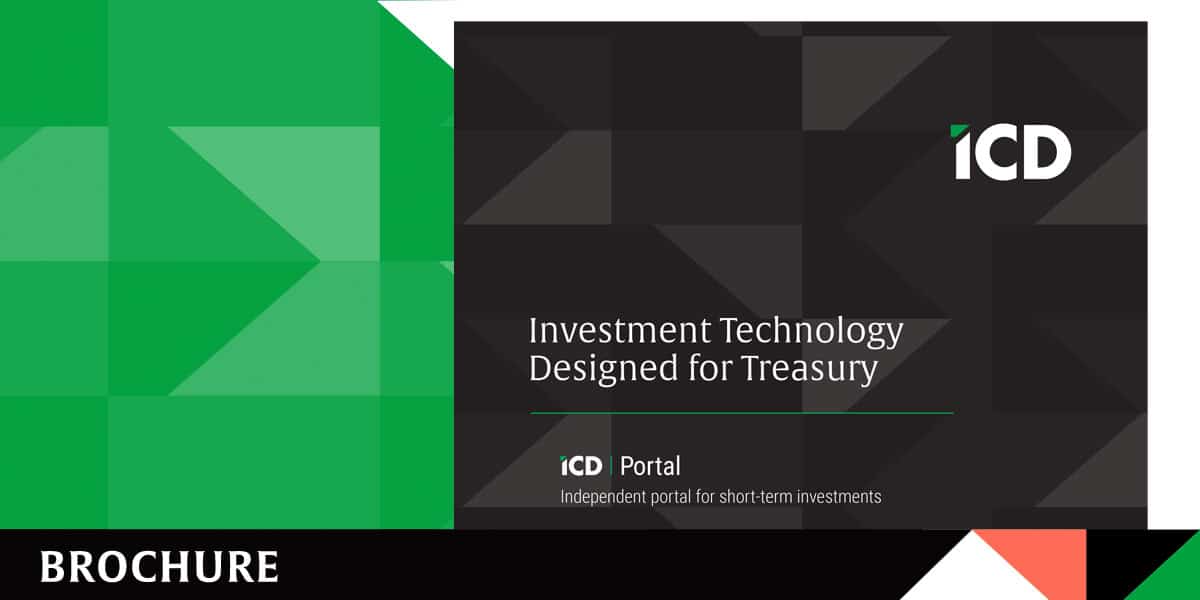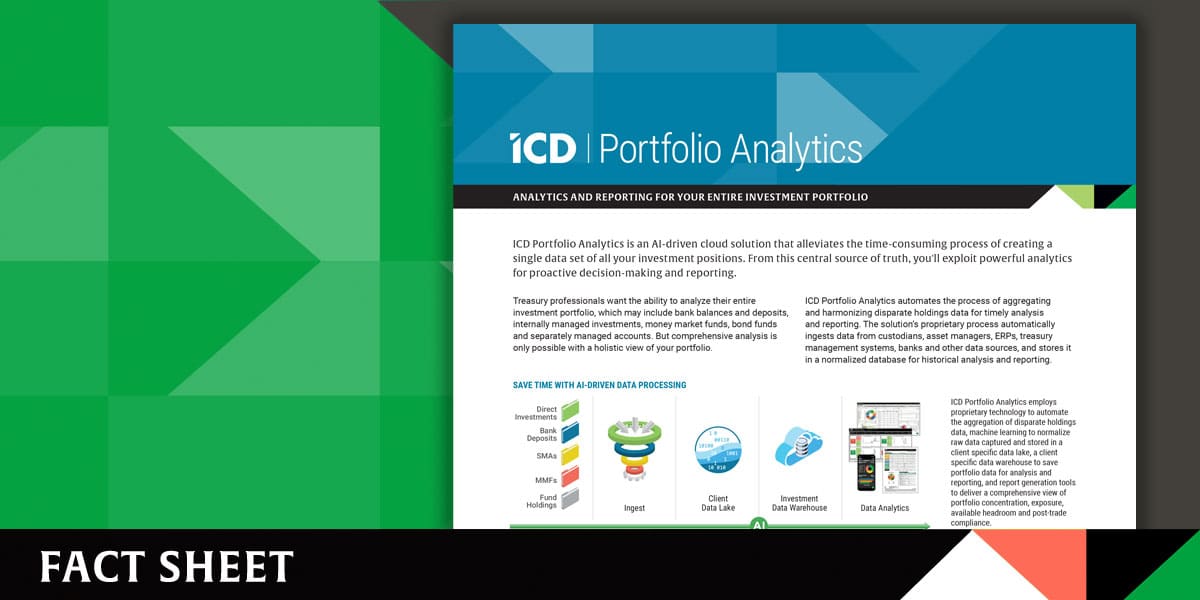ICD offers comments on swing pricing in response to the Securities Exchange Commission’s request for comments on Money Market Fund Reforms proposed rules (File Number S7–22–21).
Ms. Vanessa A. Countryman, Secretary
Securities and Exchange Commission
100 F Street, NE
Washington, DC 20549-1090
Dear Ms. Countryman,
Institutional Cash Distributors (ICD) provides an independent investment platform for more than 450 corporate and municipal investors across 65 industries in 43 countries. These institutional investors trade in over 300 money market funds on ICD Portal, which services roughly $4 trillion in annual trades. It is through this activity on our portal and an engaged client community that ICD offers the Securities Exchange Commission an informed perspective on corporate investor views and behaviors in response to the SEC’s request for comments on Money Market Fund Reforms proposed rules (File Number S7–22–21).
We agree with and commend the SEC’s proposal to decouple liquidity minimums from fee and redemption gate provisions in Rule 2a-7. We agree that the potential of a fee and the suspension of redemptions, which could occur when a fund’s liquidity falls below certain thresholds incentivizes investors to redeem while inhibiting fund managers from using those buffers to meet redemptions. We also support proposed amendments for increasing a fund’s minimum daily and weekly liquidity requirements, which will further strengthen institutional prime money market funds. However, ICD believes that the SEC’s proposed swing pricing requirements will create unintended consequences in the short-term market, exacerbating fund redemptions in volatile markets, and thus work against the SEC’s goal of preventing runs on prime money market funds.
In a March 2022 poll of ICD clients investing in prime funds, 78% indicated they would more likely redeem from a fund that experienced significant redemptions if swing pricing were in effect. With the uncertainty of how further redemptions would impact additional swing prices, investors would prefer to sell at the first sign of large redemptions, rather than wait to see if the situation normalizes. This would produce the opposite of the SEC’s principal reform objective to improve the resilience of money market funds, and likely contribute to further liquidity strains at times of market stress than if no swing pricing were in effect.
Swing pricing will also limit demand for institutional prime money market funds. In fact, should swing pricing take effect, approximately 40% of ICD’s prime money market fund clients said they would either stop investing in prime money market funds or reduce their positions in these products. Reasons for reduced prime MMF demand include: 1) the uncertainty of hidden costs due to swing pricing, which could be triggered by a single redemption for a conventional corporate action, such as paying taxes, dividends or funding an acquisition; 2) reduction of strike pricing to once per day, which fund companies have indicated would be necessary to implement swing pricing; and 3) reduced yield due to the higher cost of managing a swing pricing product.
Among the short-term money market products to which ICD prime money market fund investors have indicated they would divert cash are those that would create more risk, namely offshore funds, direct investments and investment portfolios with longer durations.
Other unintended consequences would come with reduced demand for institutional prime money market funds, including a reduction of ESG investments and limited funding options. As ESG-focused funds are prime funds, the diminishment of prime money market funds will inhibit the alignment of corporate capital with corporate social responsibility (CSR) strategies and the world’s march towards Net Zero.
Institutional prime money market funds account for a significant percentage of the total commercial paper market.Reducing prime money market funds as an investment vehicle will restrict corporate funding options and growth, while having a significant down-stream impact on smaller borrowers. The impact of reducing corporate borrowing options will make large corporations more dependent on commercial banks for funding, which in-turn would squeeze-out smaller corporations who rely on these banks today.
ICD and our corporate clients fully support the SEC’s proposed rules increasing liquidity requirements and decoupling liquidity minimums from fees and gates. Those changes, in addition to the previous reforms, will strengthen the resiliency of institutional prime money market funds. Based on our client feedback, however, we urge you not to enact swing pricing as it runs counter to your resiliency goal and will have unintended consequences that will negatively impact ESG initiatives and increase corporate borrowing costs.
Sincerely,
Tory Hazard
Chief Executive Officer
Institutional Cash Distributors, LLC (ICD LLC)


